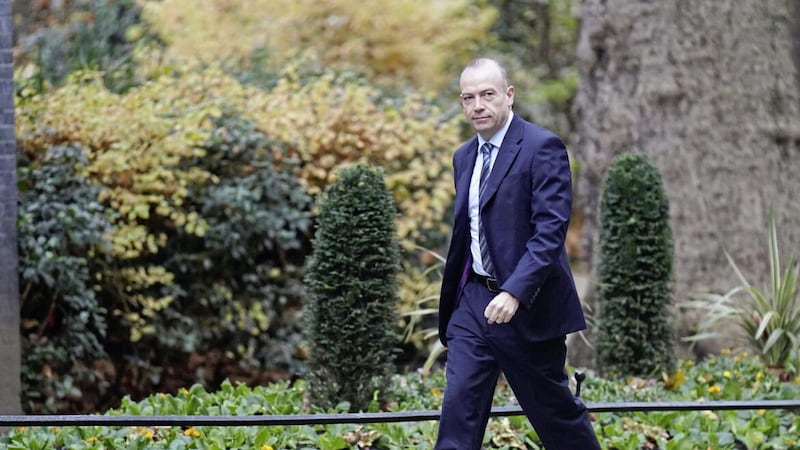The only thing wrong with the secretary of state’s threat to fix Stormont’s budget is that he will not carry it out.
Chris Heaton-Harris is no more about “to put Northern Ireland’s public finances onto a sustainable footing”, as he warned in a statement last week, than he was about to call an election at “one minute past midnight” the day the executive collapsed.
This is a great pity. If there is one advantage to a spell of Westminster intervention, it would be ramming through decisions a devolved executive seems unable to make. Same-sex marriage and abortion were addressed this way during the last collapse, with Labour backbenchers forcing the government to act. Water charging, which Mr Heaton-Harris specifically mentioned, shows how Stormont is not just stuck but regressing on financial responsibility.
Two decades ago, the genuine threat of water charges from Labour direct rule ministers helped secure the St Andrews Agreement. Debate at the time was clear the primary issue was avoiding privatisation, with every major party repeating “we still need to pay more for water”. Nobody talks about paying more today and Stormont has never increased its £300 million a year funding for domestic usage.
After St Andrews, the new executive emphasised water’s inclusion in rates bills and promised householders they “wouldn’t pay twice”. The implication was they might pay more but it would be fair.
Last week, the DUP turned that into an argument not to pay more, telling the secretary of state ratepayers “won’t pay twice”.
Failing to invest in the water system has curtailed business growth and housebuilding, causing a slow-motion economic catastrophe. The UUP advocates mutualising NI Water as a solution: making it a non-profit company, based on the example of Wales, so it can borrow privately. Alliance has proposed mutualisation since 2011 and now also suggests water charges could be itemised on rates bills, creating a clear income against which NI Water could borrow. These are good policies but they still pretend bills would not rise.
Mr Heaton-Harris threatened to put up domestic rates, in addition to introducing water charges. Rates bills here are half the level of council tax and water bills in England and equalising them would raise £615 million - enough to cover Stormont’s overspending. Levels are even higher in Wales, which has similar economic indicators to us, so pleading regional disadvantage does not work.
In reality, Northern Ireland is disadvantaged by the long-standing DUP and Sinn Féin policy of freezing rates
Half of rates bills go to Stormont, the rest to councils. It is the executive’s only serious taxation power, generating around 5 per cent of its income. Instead of taxing more, or spending less, investment in infrastructure has too often been deferred. This is the economic equivalent of cannibalisation.
Subsidising student loans is another example of Stormont paying to damage the economy. Universities are banned from expanding to keep the £200 million subsidy under control.
A feature of Stormont’s giveaways is how they benefit the relatively well-off: home-owners, graduates, pensioners.
There has always been assistance for low-income households with rates, student loans, prescriptions and public transport. Extending this help to everyone is a needless extravagance that has only made us all poorer.
While politicians have a responsibility to lead, we might sympathise with the outrage they would face if any giveaways were adjusted. There is undoubtedly a ‘mean middle’ in this society that reacts with shrieking indignation to any suggestion they should contribute more or receive less, even well within their ability. They play something like the obstructive role of Nimbys in Britain and the Republic, perhaps because our sclerotic economy is not building enough infrastructure and housing to rouse Nimbyism into a political force.
It is tempting to wonder if Scottish parsimony and Irish gombeenism have combined to make us unusually tight and entitled but there is no need for cultural mysticism to explain what is going on. Peace-processing, power-sharing and decades of high public spending were bound to have an infantilising effect. It may take an external shock to put our finances and politics on a sustainable footing. The most straightforward way to arrange that would be a for a one-off imposition of fiscal discipline from London.
However, the government is too caught up in peace processing to try anything it would perceive as this risky.
The likeliest outcome is a promise of even more money to coax the restoration of devolution over the line - and another good Stormont crisis will have gone to waste.









